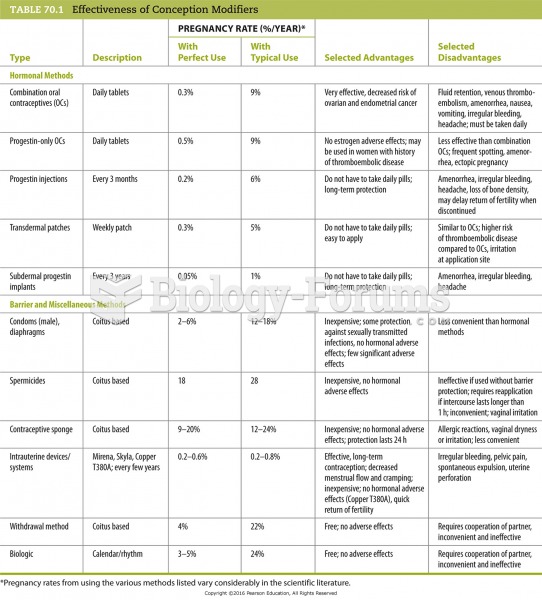|
|
|
Green tea is able to stop the scent of garlic or onion from causing bad breath.
In the United States, congenital cytomegalovirus causes one child to become disabled almost every hour. CMV is the leading preventable viral cause of development disability in newborns. These disabilities include hearing or vision loss, and cerebral palsy.
As the western states of America were settled, pioneers often had to drink rancid water from ponds and other sources. This often resulted in chronic diarrhea, causing many cases of dehydration and death that could have been avoided if clean water had been available.
Thyroid conditions cause a higher risk of fibromyalgia and chronic fatigue syndrome.
On average, someone in the United States has a stroke about every 40 seconds. This is about 795,000 people per year.







